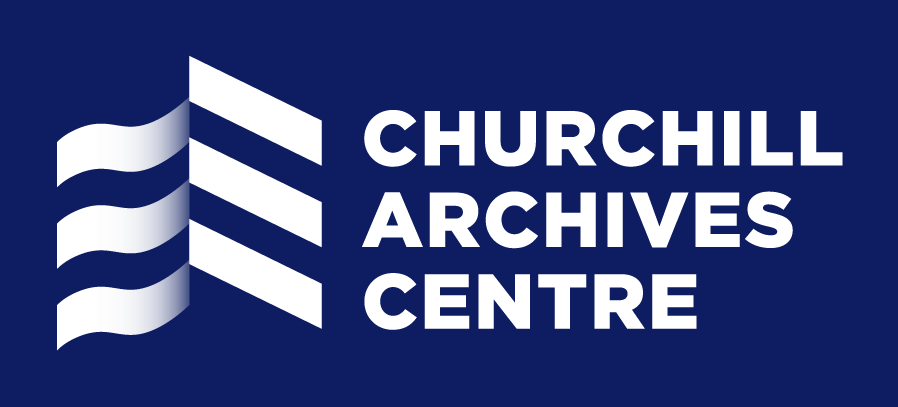College Archive Collecting Policy
This document should be read in conjunction with the main Churchill Archives Centre Collections Development Policy.
The information below expands on, and where contradictory, supersedes, the information in the equivalent section of the main policy in the case of the archive of Churchill College itself (‘the College Archive’ hereafter).
1. Methods of acquisition
The majority of material acquired for the College Archive is derived from the activities of the various departments of Churchill College. Certain record series are identified as having historic or evidential value by the College Records Manager, which are then routinely passed to the College Archive at the end of their retention period.
The College Archive also accepts material from College members, former College members and third parties where it relates to the College itself.
2. Criteria for selection
The College Archive expects to accept all material offered by Churchill College, as determined by the College Records Manager.
When material is offered by (former) College members and third parties, it will be judged by the criteria as set out in the main Collecting Policy:
3.6 The history of Churchill College, especially the personal papers of prominent figures connected with Churchill College, and records of life at college.
3. Format and types of material
While the primary material offered to the College Archive is determined by the College Records Manager, the Archives Centre seeks to acquire the following material for the College Archive:
- Records of College Governance, including strategy, policy, procedures and regulations documentation, and minutes of all College committees
- Academic and Tutorial records, including files on individual students and Fellows, records of teaching, supervision, examination results and graduations
- Administrative records of the College, including files on individual members of staff, financial records, architectural drawings, outreach events and initiatives, and legal documentation
- Records of College clubs, societies and associations
- Audio-visual and photographic material of the College building, grounds, members, and special events
- Papers of individuals associated with the governance or administration of the College (personal papers of prominent individuals who qualify under other Archives Centre criteria [see Collections Development Policy] may be added to the holdings of the Archives Centre)
- Publications about, or involving, the College, including books, newspapers, memoirs and artworks
- Gifts received by the College, including works of art
- Records relating to the history of the College not captured above, such as records of initial fundraising and foundation.
- Records of everyday life that document social and cultural change in Churchill College
- Records of the Churchill College Chapel Trust
- Records of the Møller Institute and its administration
4. Deaccessioning
Deaccessioning material from the College Archive requires the consent of the relevant College Officer, as well as that of the Archives Committee when a significant amount of material is being considered. Deaccessioning should be performed on a series, rather than item, basis; e.g. deaccessioning all files arising from a given business process, rather than singling out individual files within a series. As all other material arising from College processes is destroyed at the end of its retention period, such material de-accessioned from the College archive should be destroyed.
In the case of material which did not arrive in the College Archive via the College’s Record Retention process (e.g. that from (former) members and third parties), the general Archives Centre policy of informing the depositors or their heirs should be followed.
Last updated: Hannah James, October 2021

